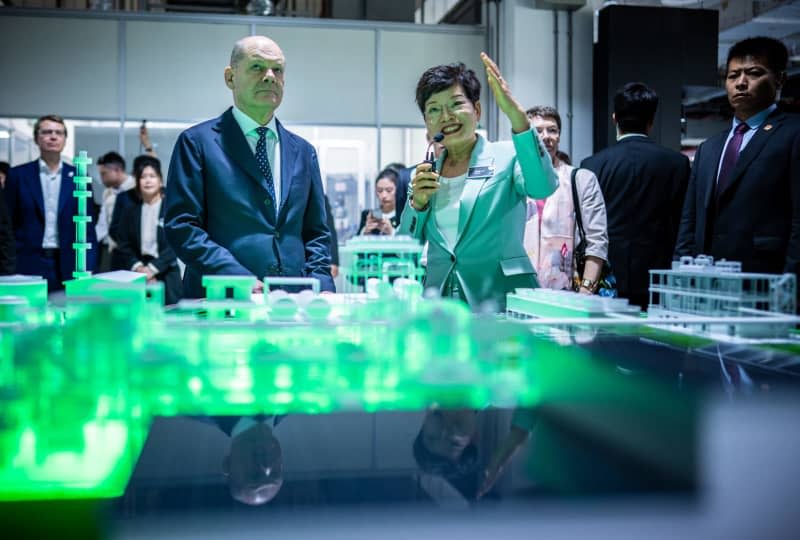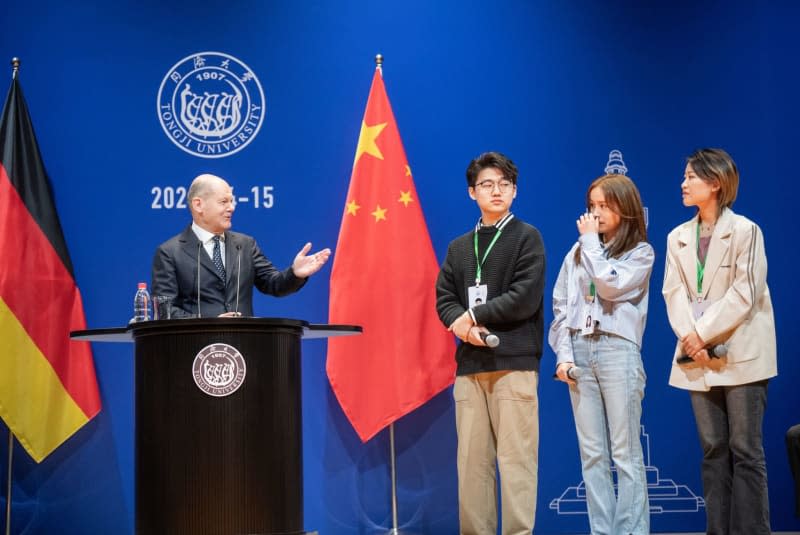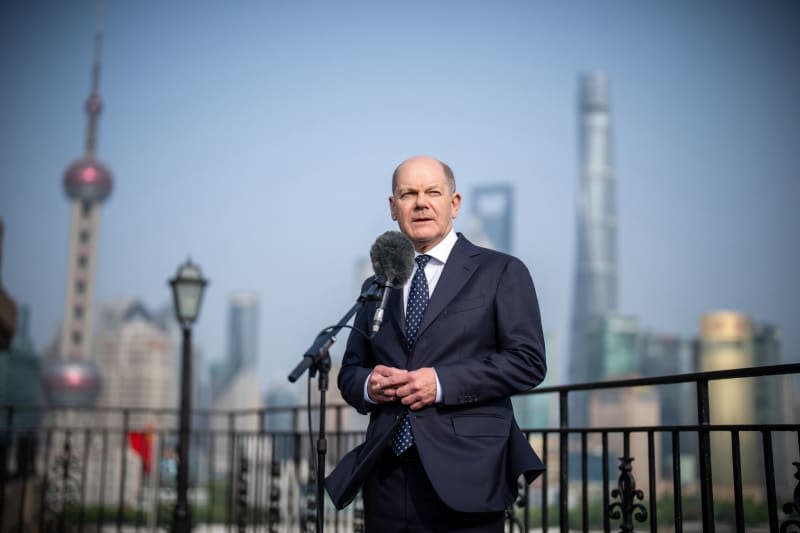Germany's Scholz calls for fair competition during China visit

- Oops!Something went wrong.Please try again later.
- Oops!Something went wrong.Please try again later.
- Oops!Something went wrong.Please try again later.
German Chancellor Olaf Scholz has called for fair competition conditions for German companies in China during his three-day visit to the People's Republic, ahead of a meeting with President Xi Jinping on Tuesday.
"The only thing that must always be clear is that competition must be fair," Scholz said on Monday at a discussion with students at Tongji University in Shanghai.
"Of course we want our companies to have no restrictions, but vice versa we behave in exactly the same way as we demand here."
There should be no dumping and no overproduction, Scholz said. In addition, he said copyrights should not be impaired and there should be no bureaucratic hurdles.
Last autumn, Brussels launched a probe into electric cars produced in China over suspicions that state subsidies ensuring that Chinese brands can offer their EVs in Europe at significantly lower prices than domestic manufacturers are causing market distortions.
"The Americans are now closing off their market, as are Brazil, Mexico and Turkey," Commission President Ursula von der Leyen told the Redaktionsnetzwerk Deutschland. "The EU cannot be the only market that remains open to Chinese overproduction."
Even though the EU wants competition with Chinese manufacturers, the conditions must be fair, said von der Leyen.
Some of the 5,000 or so German companies that are operating in China have complained about disadvantages compared to their Chinese competitors, more difficult market access and legal uncertainties.
On Monday, Scholz met representatives from companies and the German Chamber of Commerce Abroad in Shanghai to discuss the problems companies are facing in China.
During his visit to the university, Scholz also emphasized the inviolability of borders. It must be guaranteed "that you don't have to fear your neighbour," Scholz told students. "Borders must not be moved by force."
The chancellor also emphasized the need to strengthen international institutions. He mentioned the World Trade Organization and the International Tribunal for the Law of the Sea.
There are fears that China will attack Taiwan, which it regards as its own territory. The Chinese leadership has repeatedly threatened an invasion. Beijing is also in a dispute with Vietnam, Malaysia and the Philippines over contested claims in the South China Sea.
Scholz also said he will warn Chinese President Xi Jinping against providing military support for Russia. Scholz said he will point out that Russia is waging a war of conquest against Ukraine, "and insist that no one must help this to succeed."
"That is why we are also calling on everyone not to circumvent sanctions ... and that is why we are also calling for no arms deliveries."
This also applies to goods that can be used for both civilian and military purposes, emphasized Scholz. China is considered Russia's most important ally and is suspected of supplying such goods.
Scholz also plans to visit an innovation centre of German plastics manufacturer Covestro on Monday. A dinner with the Party Secretary of Shanghai, Chen Jining, is also planned for later in the day.
Shanghai, the second stop on the chancellor's three-day visit to China, follows a first day in Chongqing, the world's largest city. On Tuesday, Scholz will continue on to Beijing for political talks with President Xi Jinping and premier Li Qiang.
The German chancellor is accompanied by a dozen chief executives, among them the bosses of car manufacturers Mercedes-Benz and BMW, as well as the chemical company BASF. Volkswagen, Europe's largest car manufacturer, is not taking part this time.



